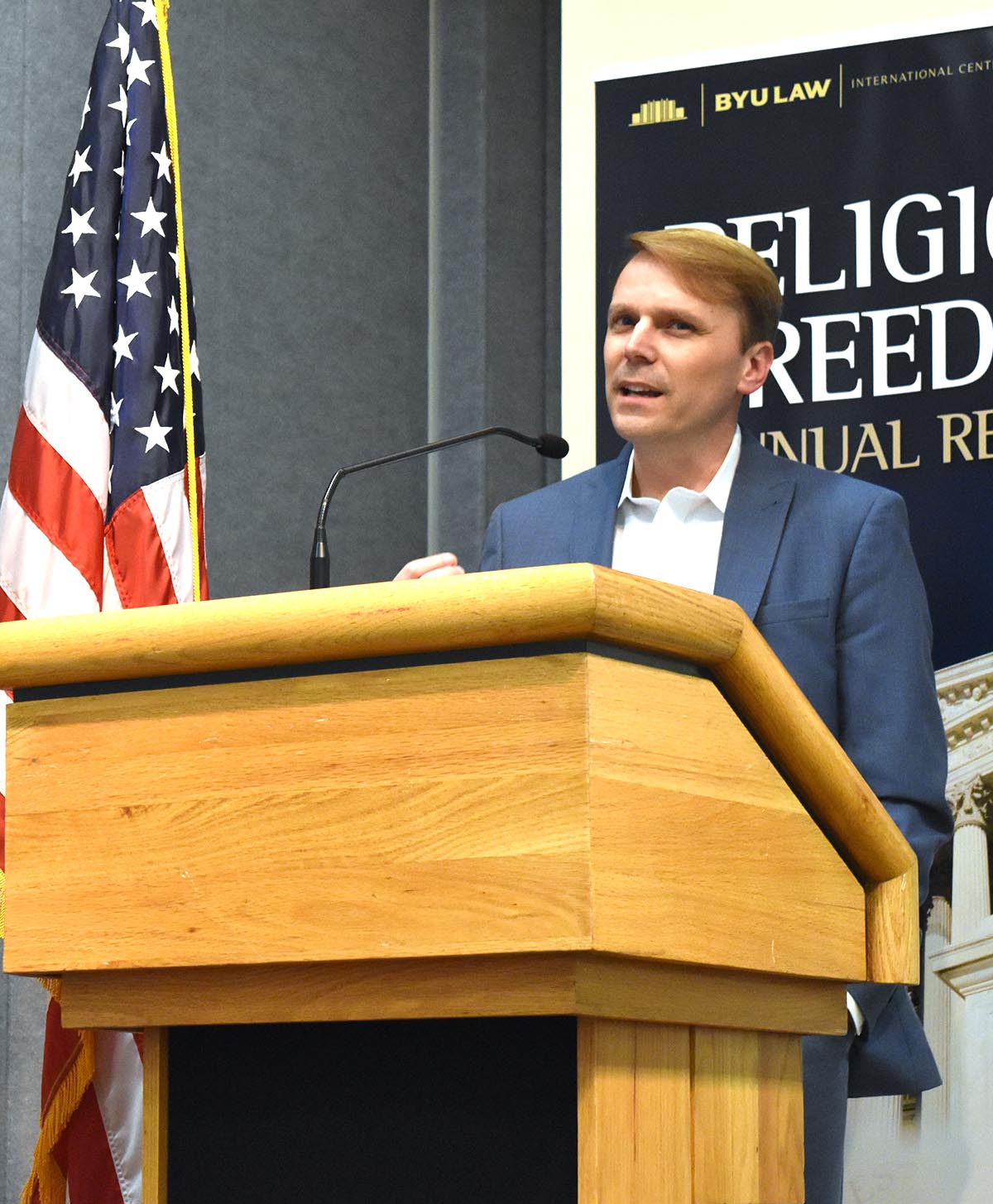Workshop: Religious Liberty & Religious Literacy in American Public Schools – Nathan C. Walker

by Joshua Prince, 2016 ICLRS Student Fellow, and Cecilia Matos, Religious Freedom Annual Review Volunteer
Reverend Nathan Walker is the Executive Director of the Religious Freedom Center of the Newseum in Washington D.C. The Religious Freedom Center envisions a world where everyone throughout the world is free in their religious practices and beliefs.
One issue that is hindering the furthering of religious freedom is a lack of religious literacy. The Newseum is trying to rectify that through a 5-fold plan. First, they seek to promote civil dialogue by engaging leaders in discussions about religious freedom and literacy in the public square. Second, they strive to equip schools by training teachers and leaders. This allows them to fully understand their rights and their students’ rights, under the law, to religious freedom in their schools. Third, they engage the public by promoting public programs to aid in religious freedom in public schools. Fourth, they provide funding, through scholarships, for religious freedom or liberty courses. And fifth, they have a unified commitment to educate leaders and continual efforts to do so.
Walker said that civil dialogue begins in the effort to find mutual understanding. Newseum cites the Williamsburg Charter, which speaks of the “3Rs of Religious Liberty,” (1) everyone has Rights; (2) everyone has the Responsibility to defend those rights; and (3) each person’s use of those rights should be Respected. Walker said we need to avoid “otherizing others.” As Robert Schreiter wrote, this could involve: demonizing, romanticizing, colonizing, generalizing, trivializing, homogenizing, or vaporizing others. Any of these actions can serve to stifle civil dialogue.
“Religious literacy is defined as the ability to discern and analyze the intersections of religion with certain social, political, and cultural life through multiple lenses,” according to the American Academy of Religion. The Newseum Institute of Religious Freedom offers classes that focus on the historical impact of religious and tie it into contemporary relevance, not only in America, but also world-wide. There are four diverse ways in which human rights or freedom of religion or belief are exercised throughout the world. The most common one is Freedom of Religion, but there is also freedom for religion, freedom from religion, and freedom within religion. He believes that as we understand all these different ways of how people exercise their constitutional rights regarding religion, we will better understand exactly what those rights are.
The invitation left by Nathan C. Walker to the participants of the 2017 Religious Freedom Annual Review was an invitation for us to dig deep into all our own personal histories and recognize if we’ve been acting in such a way that hinders religious freedom. He also encourages us to learn about the history of our communities, states, countries, and the world so that we learn how not to let the past religious oppressions repeat themselves. Reverend Walker also invited us to seek mutual understanding with others, but to realize that that need not imply agreement.